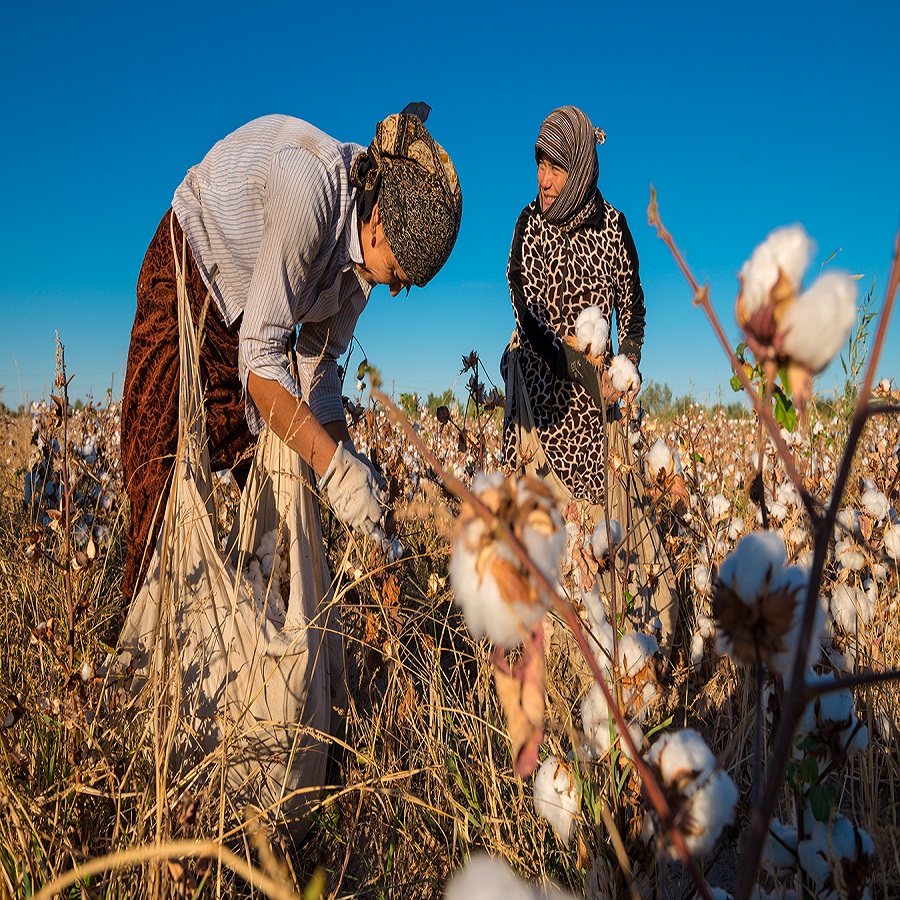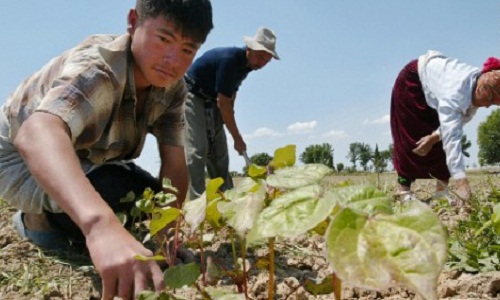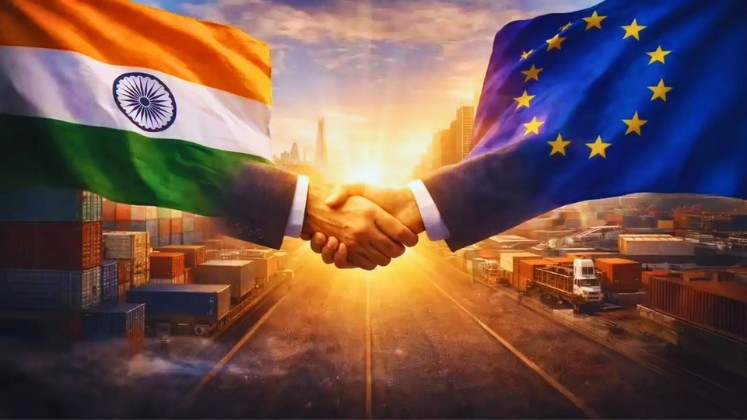
Forced labour, a norm
entrenched Both countries’ economies have deeply forced labour production systems. It works like this—the
It works like this—the
|
|
state owns most of the land, leases it to the farmers and imposes cotton production quota. If the annual quota is not met, it results in punishment, public humiliation or even loss of land.
The governments also deliberately set the procurement price of cotton lower than the cost of production. Besides, the governments have monopolies over everything; they buy and sell all the cotton and in turn make huge profits, but not for the benefit of the people but for the profit of corrupt private elites.
The pickers are recruited mainly from civil services; there are teachers, doctors, nurses and local administration employees who leave their regular jobs to work in the fields for a few weeks. The conditions they stay in are dismal—they often sleep in barracks without running water or basic sanitary equipment, work long hours daily to fulfil the government imposed cotton quotas of cotton. They face losing their jobs or regular harassment in their workplaces, if they refuse or fail to meet the quotas.
Yet, multinational companies and western governments continue to trade in Uzbek and Turkmen cotton, and promote business and investment in both countries, or precluded large World Bank investments in Uzbekistan.
One of the world's most oppressive regimes is Turkmenistan, which remains completely closed to any international scrutiny as there is no free media and human rights defenders face severe repression. Nothing seems to change for this year’s cotton harvest too.
A ray of hope
Uzbekistan, though, seems to be making progress. In April 2014 the country’s government committed to working with the International Labor Organization to eradicate forced labour. However, this action was not full-fledged, as the number of children in picking cotton in the fields reduced dramatically since 2012, the general system of forced labour remains intact.
The Uzbek government has changed its tactics and employed adults in place of children, thus not complying with national and international laws. If this was a ploy, it seemed to have worked, as few children in the fields and apparent openness to engagement won the government some praise from the international community. Finally, this year, the U.S. Department of State upgraded Uzbekistan in its Trafficking in Persons Report.
According to the Cotton Campaign, a coalition of human rights groups dedicated to ending forced labour in cotton production in Uzbekistan and Turkmenistan, of which Anti-Slavery International is a member, the police have assaulted have assaulted Elena Urlaeva, one of the most prominent Uzbek human rights defenders, for attempts to document forced labour in weeding the cotton fields and for disseminating leaflets with information about Uzbek laws prohibiting forced labour. This shows that the government is pulling all stops in any efforts to document the ground realities.
Though there is increasing demand since the last ten years for a change in Uzbekistan, the value of the trade to several international businesses means their governments are unlikely to maintain the pressure once some token concessions have been made by the Uzbek government. Therefore, the onus lies on the consumers-voters to urge the government to be strict with those that continue this slavery.












